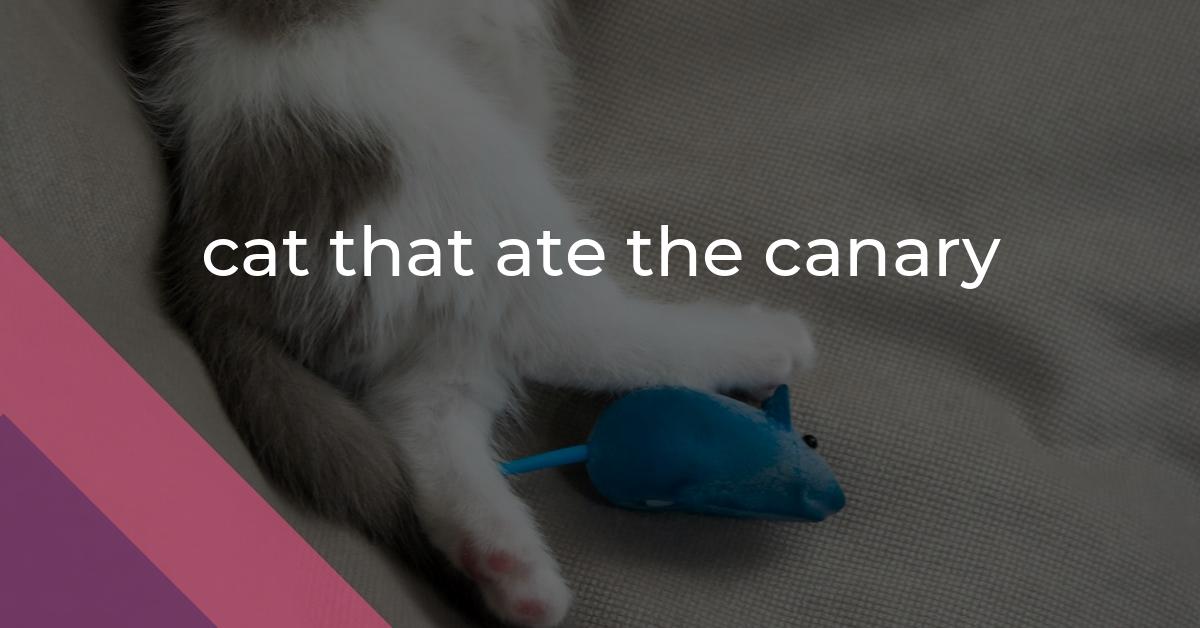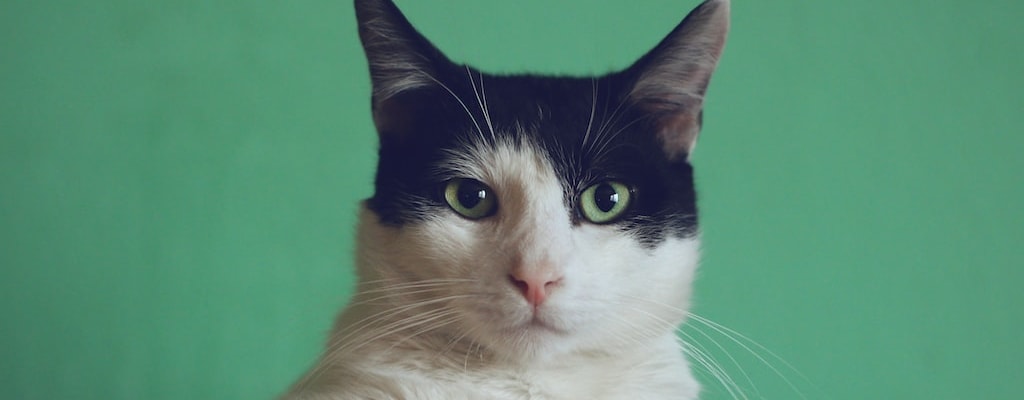cat that ate the canary: Idiom Meaning and Origin
What does ‘cat that ate the canary’ mean?
An idiom meaning someone who is smug or self-satisfied, typically after getting away with something wrong or deceitful.

Idiom Explorer
"Stuck up" is an idiom used to describe someone who is arrogant, snobbish, or thinks they are superior to others. It implies a sense of haughtiness and a lack of humility.
The idiom "do well for oneself" means to be successful or prosperous in one's personal or professional life.
An idiom meaning to outdo or surpass someone's accomplishment or action.
The idiom "do somebody wrong" means to treat or behave towards someone in an unfair or unjust manner.
The idiom "devil in disguise" means that someone or something appears good or harmless but turns out to be a problem or evil in reality.
An idiom meaning to take shortcuts or do something in a faster or easier way, often sacrificing quality or thoroughness. It is used to describe a situation where someone tries to save time, money, or effort by finding an easier or quicker way to achieve a goal.
The idiom "cover up" means to hide or conceal something, often a mistake or wrongdoing, in order to avoid being caught or facing consequences.
An idiom used to describe something ordinary, typical, or unremarkable.
An idiom meaning a man in a situation of power or control in a predominantly female environment, often causing disruption or imbalance.
The Muir of a Feline
The idiom "cat that ate the canary" is a well-known phrase in the English language. It is used to describe someone who appears smug or self-satisfied, typically after getting away with something or being the cause of someone else's misfortune.
The origins of this idiom can be traced back to the late 19th century and it has been in popular usage ever since. While the exact origin of the idiom is unclear, it is believed to be rooted in the behavior of cats. Cats have a natural instinct to hunt and catch birds. When a cat successfully catches a bird, it may exhibit a sense of pride and satisfaction.
This behavior, along with the imagery of a cat with feathers in its mouth, gave rise to the expression "cat that ate the canary" as a metaphor for someone who is pleased with themselves. In addition to its literal interpretation, the idiom has also taken on a broader and figurative meaning.
It is often used to describe someone who is knowingly guilty or has done something they shouldn't have but is reveling in their misdeeds. The smugness associated with the idiom implies a lack of remorse or concern for the consequences of their actions.
The idiom "cat that ate the canary" is rooted in a sense of superiority and the satisfaction that comes from getting away with something. It can be used to describe someone who is "stuck up" or arrogant in their demeanor. Similar to a cat that catches a bird, this person may believe they are superior to others and take pleasure in their perceived superiority.
Furthermore, the idiom can also be related to the concept of "bragging rights." When someone displays the smug satisfaction of a cat that has caught a canary, they are essentially bragging about their success or achievement, even if it involves some level of wrongdoing. The idiom captures the essence of someone who wants to show off or boast about their accomplishments.
Additionally, the idiom can also be connected to the phrase "do someone one better." A cat that has caught a canary has outdone itself and accomplished something noteworthy in the context of hunting. Similarly, when someone acts like the "cat that ate the canary," they are surpassing someone else's achievements or trying to one-up them.
The idiom "cat that ate the canary" has become a commonly used phrase in both spoken and written English. It is often employed in a lighthearted or humorous manner to describe someone's behavior or attitude. Its widespread usage and cultural significance make it a valuable addition to the English language.
While the exact origins of the idiom remain somewhat elusive, its longevity and popularity indicate its enduring appeal. The image of a satisfied cat with a mouthful of feathers resonates with people, evoking a sense of mischief and smugness. While the idiom may seem simple on the surface, it carries with it a nuanced understanding of human behavior and emotion.
As language continues to evolve, it is fascinating to observe how idioms like "cat that ate the canary" persist and adapt to new contexts. The idiom's ability to capture a complex range of emotions in just a few words is perhaps why it has endured throughout the years. Its usage in everyday conversations and written works further solidifies its place in the lexicon of the English language.
Example usage
1. John had a mischievous grin on his face, looking like the cat that ate the canary, after pulling off a successful prank on his friends.
2. The politician walked into the press conference with a confident air, appearing like the cat that ate the canary, knowing he had just won a major election.
3. Sarah couldn't hide her guilty expression, resembling the cat that ate the canary, when questioned about eating the last slice of cake.
More "Satisfaction" idioms



